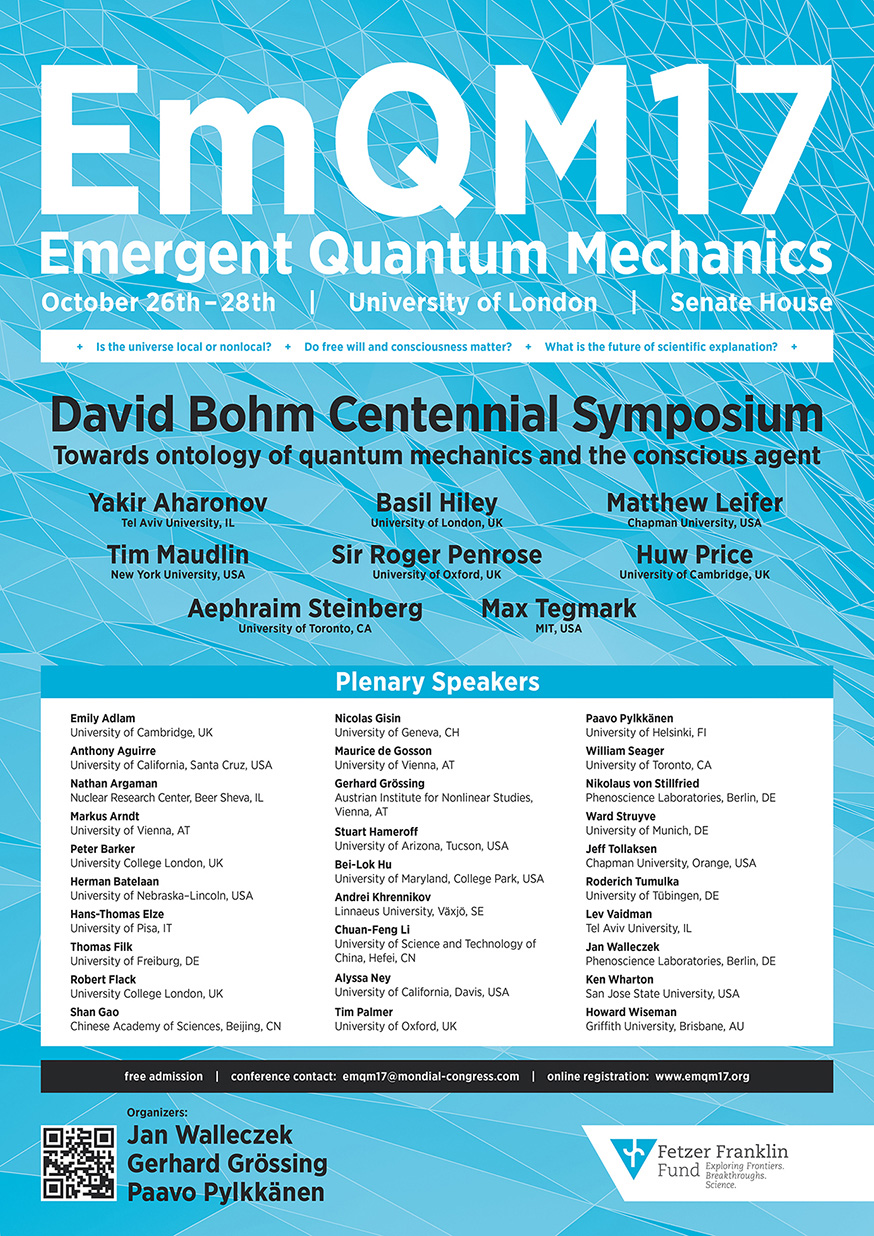P. Van Reeth, Albandari W. Alrowaily, S. J. Ward and B. J. Hiley
Vortices in low-energy positron-hydrogen scattering
One of the main differences between positron-hydrogen and electron-hydrogen collisions is the possibility for the positron to pick up the electron from the hydrogen atom and forming a bound state atom, the positronium (Ps). Having made a detailed theoretical investigation of low-energy positron-hydrogen scattering we have established the presence of two vortices in the velocity field associated with the Ps formation scattering amplitude fPs [1]. We have determined the local/real and osmotic/imaginary velocity fields that are associated with fPs, and from the osmotic/imaginary velocity field we have extracted the corresponding quantum potential [2]. In addition, we are investigating both velocity fields and the quantum potential for a vortex associated with an analytical function that is linear in two Cartesian coordinates in an expansion about an isolated first-order zero [3,4]. We plan to compare the results obtained using the numerically determined scattering amplitude fPs with the results obtained with the analytical function. *Department of Physics and Astronomy, University College London †Department of Physics, University of North Texas xHome Institution: Princess Nourah bint Abdulrahman University +NSF Grant No. PHYS-1707792 acknowledged.
References:
[1] A. W. Alrowaily, S. J. Ward, and P. Van Reeth, in preparation.
[2] B.J. Hiley, J. Phys. Conference Series 361, 012014 (2012)
[3] K. -K. Keung and J. J. Griffin, Phys. Rev. C 15, 1126 (1977)
[4] S. J. Ward and J. H. Macek, Phys. Rev A 90, 062709 (2014)



